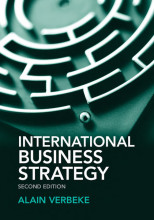Summary: Business Research Techniques
- This + 400k other summaries
- A unique study and practice tool
- Never study anything twice again
- Get the grades you hope for
- 100% sure, 100% understanding
Read the summary and the most important questions on Business Research Techniques
-
1 The Research Process
-
1.1 What is (sound) business research
This is a preview. There are 3 more flashcards available for chapter 1.1
Show more cards here -
What is the use of Business research?
- In order to be able to
perform business research - In order to be able to
steer business research - In order to be able to
evaluate business research
- In order to be able to
-
When to use Fundamental research?
To generate new knowledge for several organizational settings, the research is conducted mainly within universities -
What are elements of business research?
- Business research is well-thought-out
- Business research entails gathering and analyzing data
- Business research is meant to help managers make better decisions
- Business research is well-thought-out
-
1.2 The 7-step research process
This is a preview. There are 6 more flashcards available for chapter 1.2
Show more cards here -
What are the seven steps in the deductive research process?
- Define the business problem
- Formulate the problem statement
- Develop a theoretical framework
- Choose a research design
- Collect data
- Analyze data
- Write-up
- Define the business problem
-
2 Defining the Problem and Developing Theory
-
2.1 Defining a business problem
This is a preview. There are 5 more flashcards available for chapter 2.1
Show more cards here -
When is a business problem feasible?
- The problem is demarcated? (afgebakend)
- The problem can be expressed in variables
- You are able to gather the required data for the business problem
- Existing data
- New data
- The problem is demarcated? (afgebakend)
-
What are the two sub categories of relevance?
- Managerial relevance
- Academic relevance
- Managerial relevance
-
When is managerial relevance present?
At leastone of ....Benefits from theproblem beingsolved :- Managers of;
- one company
- one industry
- multiple industries
- End users (consumers, investors, tax payers)
- Pubilc policy makers (government)
-
2.2 Formulating a problem statement & research questions
This is a preview. There are 5 more flashcards available for chapter 2.2
Show more cards here -
How to come from the business problem to the problem statement?
Business problem is manager focused and the problem statement is research focused in order to come from the business problem to the problem statement preliminary research needs to be conducted:- Background information of the organization (context)
- Background of the topic that your research is aobut (extant literature)
-
2.3 Variables
This is a preview. There are 3 more flashcards available for chapter 2.3
Show more cards here -
What is a variable?
An element, feature or factor that is liable to vary or change -
Which criteria must a variable meet?
- Variables should vary in the context of your study
- take on omre than one value (numerical or categorical_
- Two types of variation possible
- Variation acrooss subjects
- Variation over time
- Variables should carry unmabiguous names
- Variables should vary in the context of your study
- Higher grades + faster learning
- Never study anything twice
- 100% sure, 100% understanding
Topics related to Summary: Business Research Techniques
-
The Research Process - What is (sound) business research
-
Defining the Problem and Developing Theory - Defining a business problem
-
Defining the Problem and Developing Theory - Variables
-
Defining the Problem and Developing Theory - Developing a theoretical framework
-
Choosing a research strategy - What is a research strategy?
-
Choosing a research strategy - Correlational v.s. causal research strategies
-
Collecting & analyzing data - How to structure a data set
-
Survey research - Survey measures
-
Survey research - Survey mode
-
Survey research - Reliability and validity in survey research
-
Experimental lab research - The basics of experimental lab research
-
Experimental lab research - Experimental designs
-
Archival research - Piecing together archival data
-
Archival research - Reliability and validity in archival research
-
Experimental field research - The basics of experimental field research
-
Experimental field research - Reliability and validity in experimental field research
-
Qualitative research - The basics of qualitative research - Collecting primary qualitative data
-
Qualitative research - The basics of qualitative research - Validity in qualitative research































